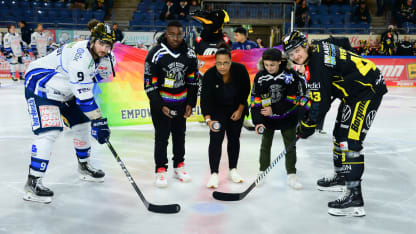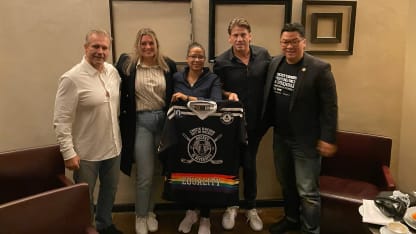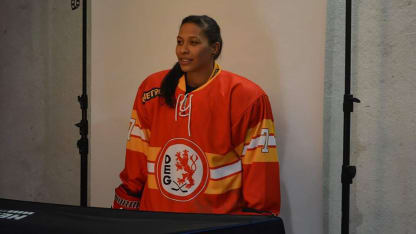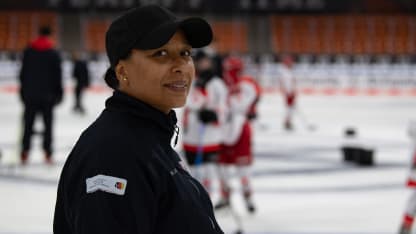William Douglas has been writing The Color of Hockey blog since 2012. Douglas joined NHL.com in 2019 and writes about people of color in the sport. Today, as part of NHL.com's celebration of Women's History Month, he profiles Miriam Thimm, a coach who was one of the first Black women to play in Germany.
Miriam Thimm knew hockey was for her from the moment an uncle took her skating at a rink in Dorsten, Germany, when she was 7 years old.
"Figure skating is not really me," Thimm said. "And I saw a couple of guys in my neighborhood playing hockey. So I started playing hockey. The first time I had a hockey stick in my hand, I totally knew it was for me."
Thimm became one of the first Black women to play and advance in hockey in Germany. The 44-year-old retired forward played in the German Women's Ice Hockey League -- or DFEL -- and for the women's national team. She has coached men's and women's hockey in Duisburg, Dusseldorf and Bergkamen since 2013.
Thimm has become a face and a force for diversity in German hockey and beyond.
She is a member of the Ombudsperson, an independent arbitration panel that examines cases of racism and sexism in the German Ice Hockey League, the country's highest professional men's league, and in DEL 2.
"It's sad, but I'm still needed," Thimm said. "Germany is trying their best, but there is still a long way to go."
Thimm is also member of the NHL Coaches' Association's Female Coaches Program, which was launched on International Women's Day in 2020 to help support the development of female hockey coaches at all levels of the sport.





















